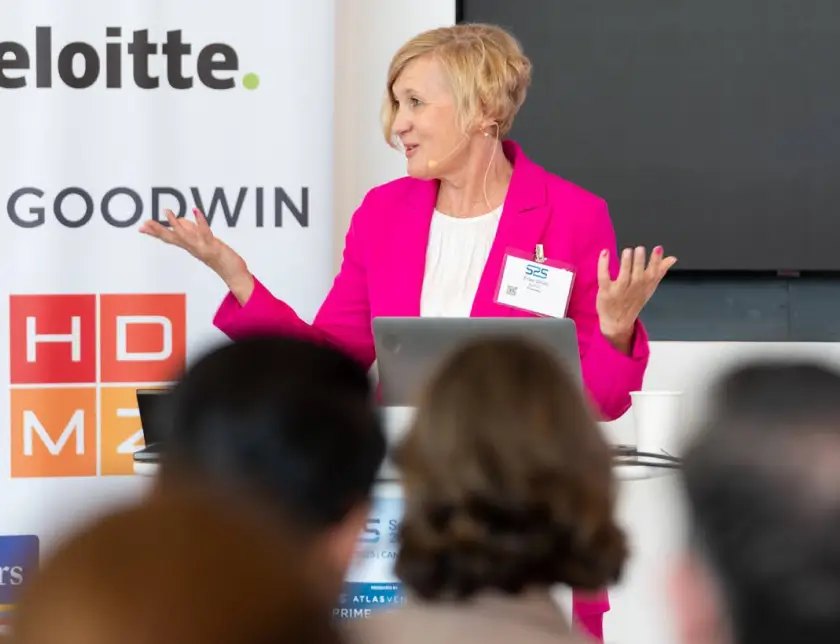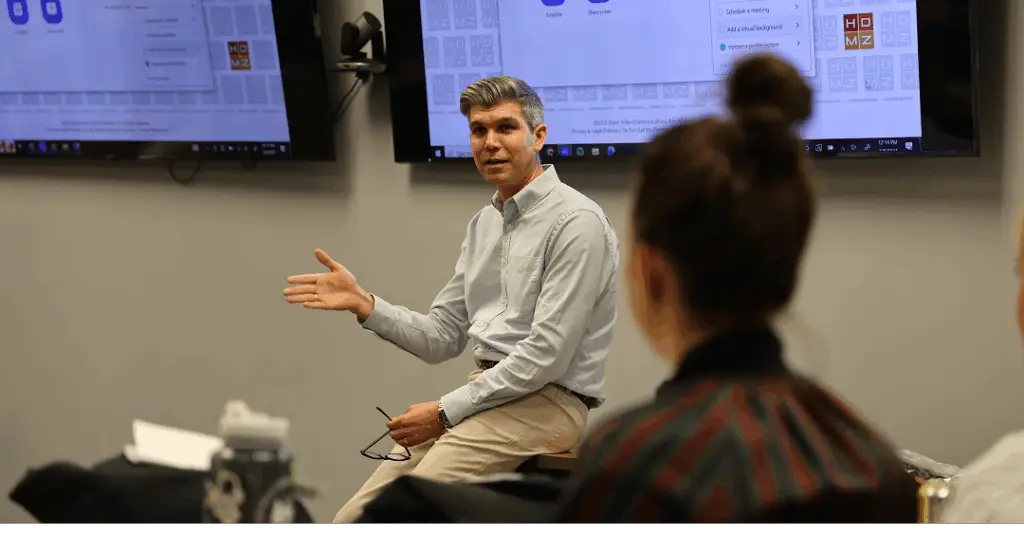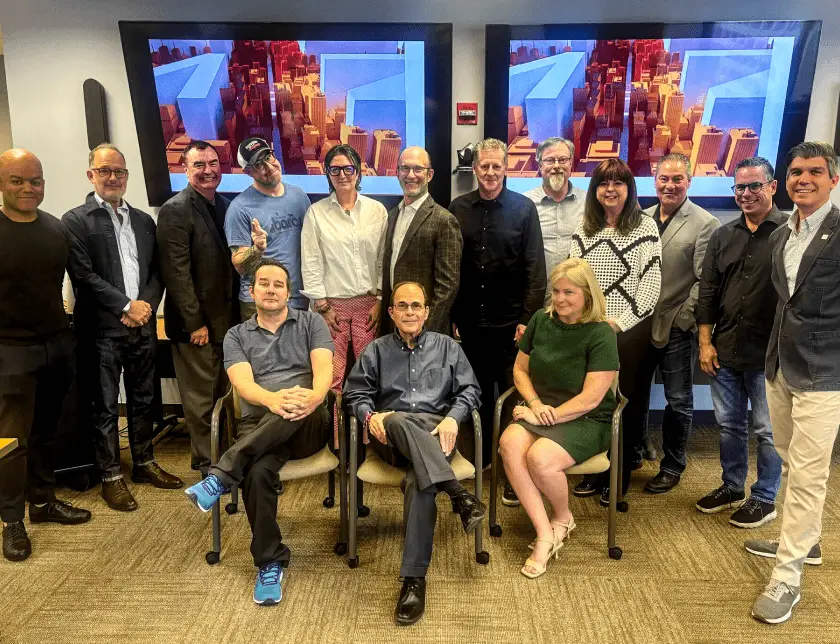Even with global uncertainty and market volatility, the biotech startup community remains a beacon of innovation and determination. Last week, HDMZ proudly co-sponsored the 2025 Science2Startup symposium at the Ragon Institute in Boston, an exclusive gathering showcasing groundbreaking therapeutic ideas from top global institutions.
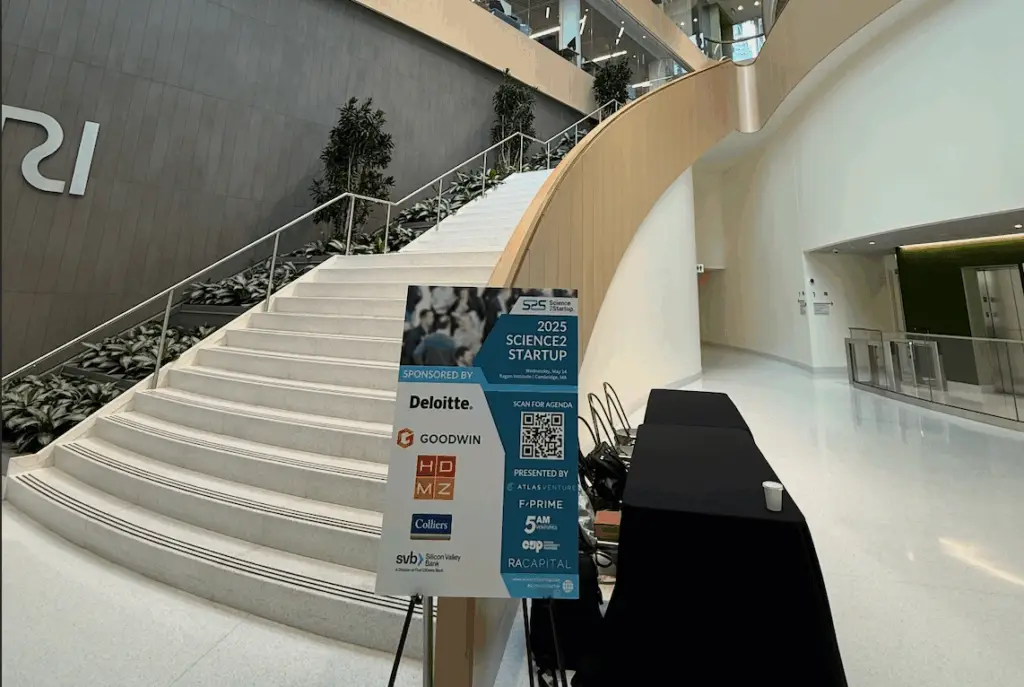
Eight standout startups, selected through a rigorous application process, presented their visions on a particularly beautiful Wednesday. The HDMZ team had the privilege of mentoring three of these remarkable finalists in preparation for their talks: EpiTET Therapeutics, emc2 Bio, and Centron Bio. And their ideas were nothing short of inspiring.
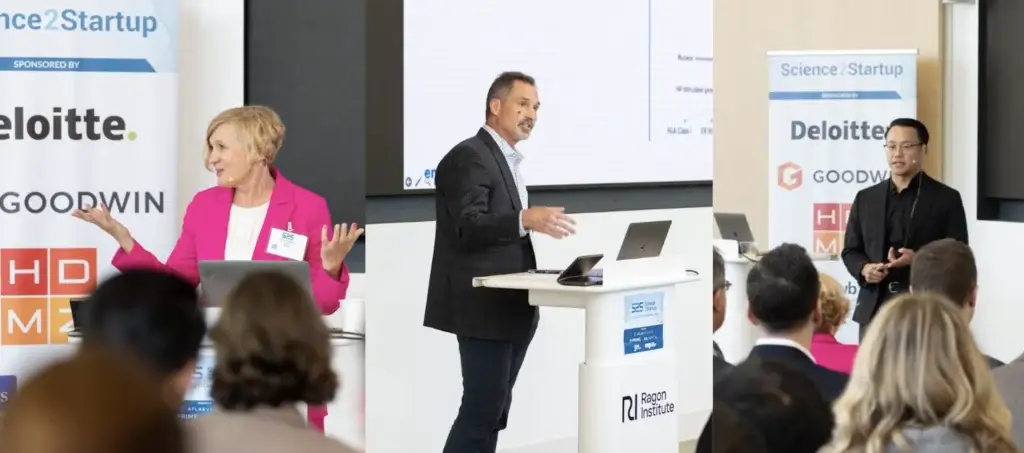
EpiTET Therapeutics, led by CEO Erika Smith, is tackling chronic inflammatory diseases, such as endometriosis, which affects over 6.5 million women in the U.S. with no effective treatments. The company’s approach targets pathogenic TET3-overexpressing macrophages — key drivers of pro-inflammatory loops — using an oral therapy. This targeted strategy could be a game-changer for women’s health, and addresses a critical unmet gap in care.
emc2 Bio, under CEO Scott Carmer, is driven by a personal mission to cure type 1 diabetes (T1D), inspired by his daughter’s diagnosis. Carmer’s team is borrowing from cancer’s immune evasion tactics to protect insulin-producing beta cells from being mistakenly targeted by patients’ immune systems. The company’s novel therapy combines STAT2-targeting siRNA with a beta-cell-specific lipid nanoparticle, a first-of-its-kind approach that aims to halt the autoimmune destruction in T1D.
Centron Bio, headed by CEO James Tran, is revolutionizing neurodegenerative disease treatment by addressing a major hurdle: crossing the blood-brain barrier. The company’s peptide-based drug delivery platform delivers various payloads — including antisense oligonucleotides, siRNA, and mRNA — directly to neurons and glia via a non-invasive injection. Unlike bulkier antibody transporters used today, Centron’s smaller delivery system ensures higher central nervous system distribution and therapeutic activity, which offers hope for conditions such as Alzheimer’s, and beyond.
Biopharma Outlook: How Expert Investors Are Navigating Uncertainty
Beyond the startup presentations, a major topic at Science2Startup was the biotech industry’s response to recent market fluctuations, particularly under the Trump administration. A compelling panel featuring industry heavyweight investors — Bruce Booth (Atlas Venture), Jim Mackrell (Lilly Ventures), and George Milstein (TD Cowen) — unpacked the industry’s challenges and opportunities.
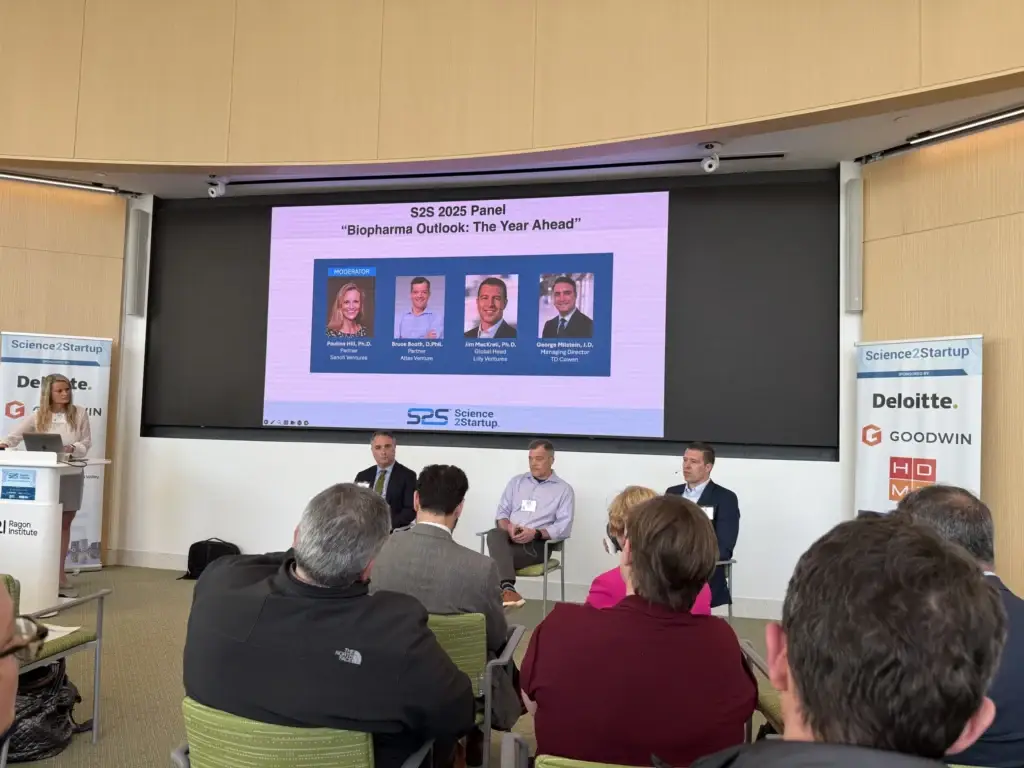
The impact of the Trump administration led to spirited discussions with all three investors. The panelists opened up with how the XBI biotech index has dropped 26% since Trump’s inauguration, reflecting short-term uncertainty. Yet, as Milstein noted, this disruption appears in line with, or even slightly milder than, past market dips, such as the 2008 Financial Crisis and the COVID-19 Lockdown, fostering signs of hope. As of now, investors remain cautiously optimistic as markets begin to restabilize; however, challenges persist.
Milstein also predicted no IPO market recovery for at least 12 months, noting that only a handful of the 130 biotech IPOs since 2021 are trading above their debut price. Startups seeking funding are still advised to explore all capital sources, including asset dilution, to preserve cash. To no surprise, the ecosystem will continue to favor clinically de-risked assets. And, in this climate, investors are disproportionately prioritizing “best-in-class” companies over “me-too” ventures to focus on high-value innovators.
However, despite the uncertainty, the panel also offered balanced perspectives. Booth acknowledged the Trump administration’s style isn’t for everyone, but emphasized the real need to address inefficiencies in regulation and drug development. He also reminded the audience that past administrations faced similar scrutiny, citing former U.S. Food and Drug Administration official Peter Marks’ controversial tenure as an example.
Another key discussion focused on academic funding. NIH budget cuts threaten basic research, which is the foundation of many biotech breakthroughs. While the Trump administration’s approach to government efficiency has drawn some criticism, Booth raised a critical issue that many don’t consider in their calculus: the science reproducibility crisis. Figures vary, but a Nature survey found that 70% of biology researchers couldn’t replicate others’ findings, and 60% couldn’t reproduce their own. This inefficiency, Booth argued, potentially exacerbates high drug development failure rates and misuses government research funds, thereby underscoring the need for systemic improvements before a wider discussion can be had on unique solutions, including private/academic funding partnership models.
Looking Ahead
Science2Startup 2025 was a testament to the resilience of biotech entrepreneurs. Their ability to innovate and push forward amid market turbulence reflects not just intelligence and agility, but also profound courage. We extend our heartfelt support to all finalists, especially EpiTET Therapeutics, emc2 Bio, and Centron Bio, and look forward to their future achievements. These startups are poised to make waves, and we’re confident this won’t be the last we hear from them.
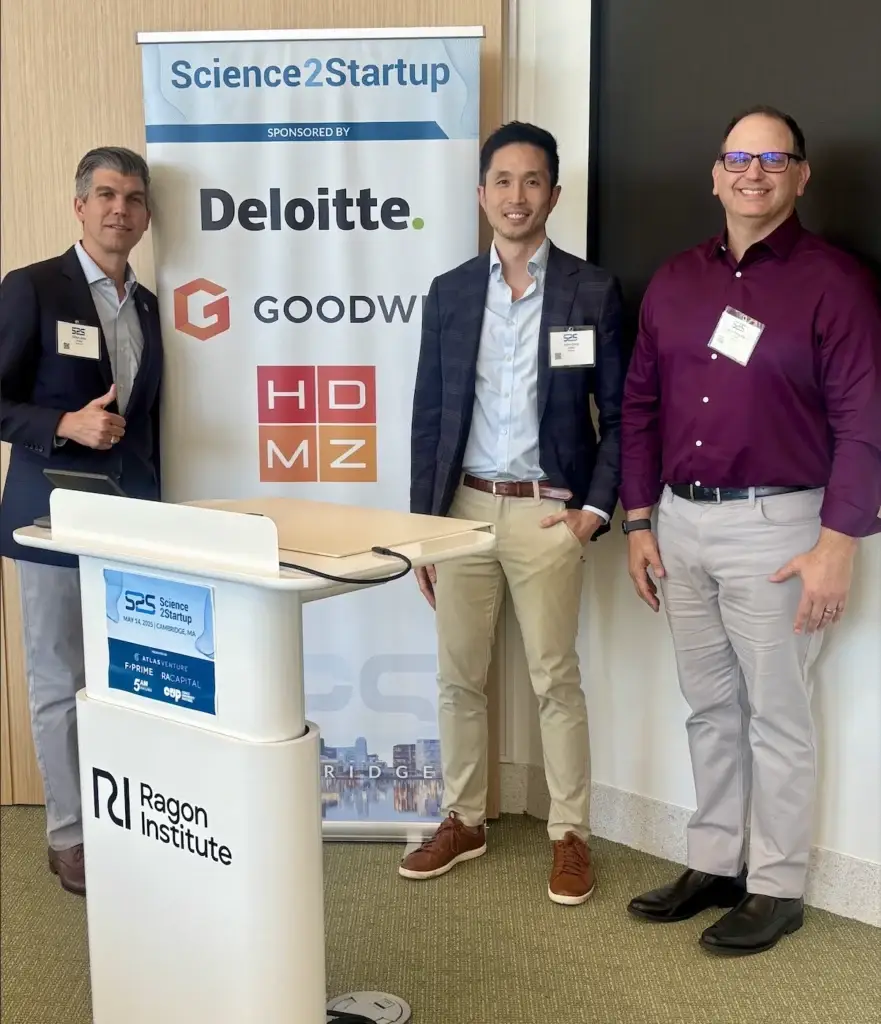
And finally, we extend our thanks to our partners at Science2Startup, including 5AM Ventures, Atlas Venture, F-Prime Capital, and RA Capital Management. Our team had an exceptional experience, and we’re excited about the opportunity to engage with this vibrant community again. Until next time!

